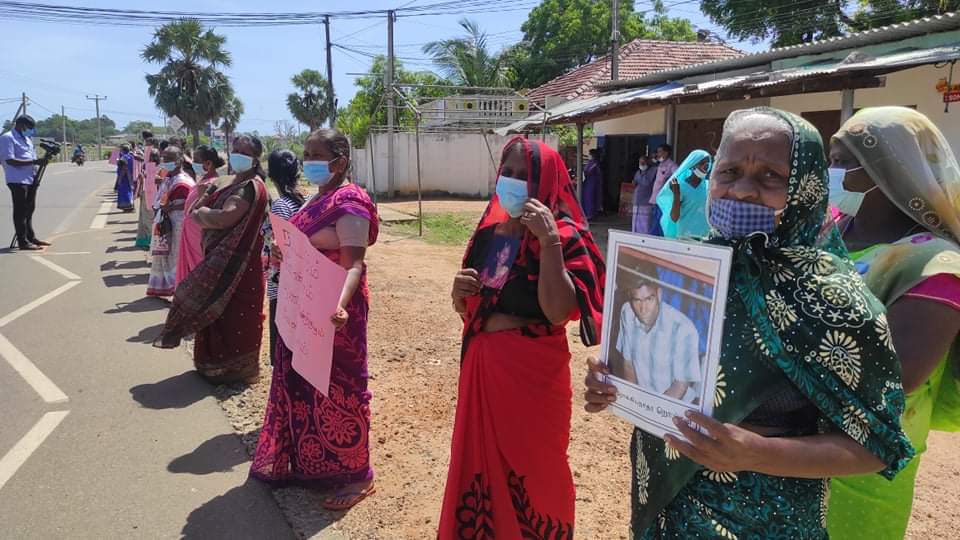
Marking International Day of the Victims of Enforced Disappearances, the UN has released a statement maintaining the need for “a fully independent and effective” Office of Missing Persons.
“Enforced disappearance deprives families and communities of the right to know the truth about their loved ones, of accountability, justice and reparation. They experience mental anguish, alternating between hope and despair, wondering, and waiting, sometimes for years, for news of the whereabouts of their loved ones. The families and friends of the victims also live with the insecurity that the search for the truth may expose them to danger”, the statement noted.
Sri Lanka has the world’s second-highest number of cases registered with the United Nations Working Group on Enforced or Involuntary Disappearances. An estimated 100,000 people have been forcibly disappeared. Whilst such disappearances affect all communities on the island, the vast majority of victims, particularly during the final phase of the war, were Tamil.
Despite over a decade passing since the end of the armed conflict, families of the disappeared have been denied an account for their loved ones, many of whom were last seen with military officials. Instead of receiving justice, Human Rights Watch (HRW) notes that victim’s families, as well as lawyers and organizations representing them, have been repeatedly harassed and threatened by the government.
The International Truth and Justice Project have reported that Tamil activists have been "abducted, tortured and raped because of their involvement in the search for the truth about the disappeared in Sri Lanka”.
The UN statement highlights that “it is women who are most often at the forefront of the struggle to resolve the disappearance of family members”. “In this capacity, they may suffer intimidation, persecution, and reprisals” they add.
Independence of the OMP
Commenting on the establishment of the Office of Missing Persons in 2016, the UN describes it as an “important step” however, as HRW notes, the institution failed to “win the trust of victim’s families” and made “limited progress”.
HRW further highlight that President Rajapaksa’s recent appointments to the office have gravely undermined its independence.
The appointments include Jayantha Wickramaratne, a former policeman accused of destroying evidence in the murder of journalist Lasantha Wickrematunge, and Upali Abeyrathne, who led last year’s commission seeking to exonerate alleged perpetrators.
HRW’s statement also follows the recent decision by Sri Lanka’s attorney general to drop the charges against the former navy commander, and close Rajapaksa ally, Wasantha Karannagoda in connection with the disappearance of 11 Tamil men and boys in 2008 and 2009.
The UN statement concludes by recognising “the courage, commitment and determination of families and victims from all communities, who, despite many challenges, have continued to voice their demands for justice and answers about the fate of their missing loved ones and we stand by them”.
Read more here.
We need your support
Sri Lanka is one of the most dangerous places in the world to be a journalist. Tamil journalists are particularly at threat, with at least 41 media workers known to have been killed by the Sri Lankan state or its paramilitaries during and after the armed conflict.
Despite the risks, our team on the ground remain committed to providing detailed and accurate reporting of developments in the Tamil homeland, across the island and around the world, as well as providing expert analysis and insight from the Tamil point of view
We need your support in keeping our journalism going. Support our work today.
For more ways to donate visit https://donate.tamilguardian.com.

